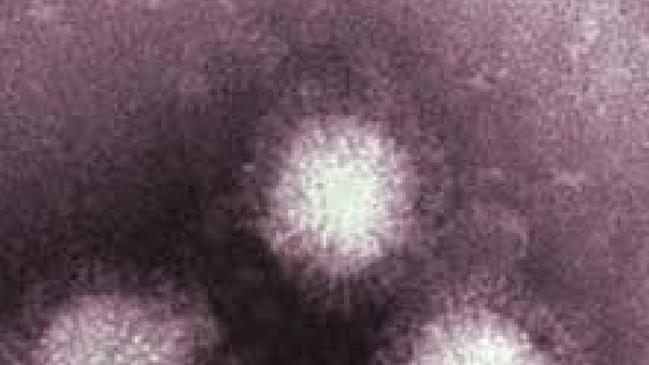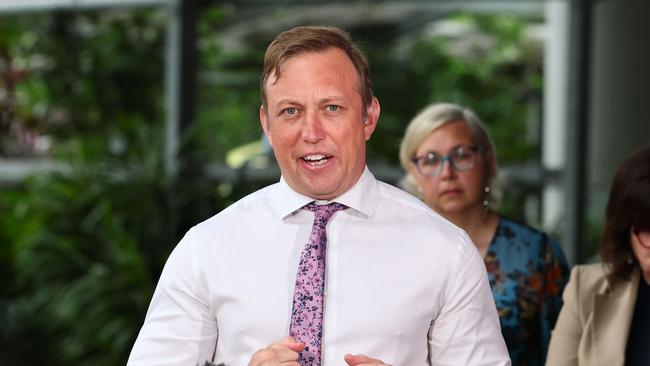Queensland government confirms infants to have access to free Respiratory Syncytial Virus immunisation program
Queensland infants will be able to take part in the state’s free immunisation program for a dangerous respiratory illness.

Queensland infants will be able to take part in the state’s free Respiratory Syncytial Virus (RSV) immunisation program.
The 12-month program will be offered to more than 70,000 newborn babies, eligible infants and young children from April.
The free immunisation program will help prevent the spread of the virus, which is the most common cause of hospitalisation among infants and young children.
About 7000 cases of RSV have been already been recorded in Queensland in 2024, which is double the number of cases in 2023 between the same period, January 1 to March 21.

More than 2100 of the cases recorded so far this year are in children under two years of age.
Acting Queensland chief health officer Catherine McDougall said the immunisation program was an important step in protecting children ahead of winter.
“We know RSV is widespread across Queensland and occurs year round, with peaks typically occurring during the autumn and winter months,” Dr McDougall said.
“In recent weeks, we have seen a steady rise in RSV cases across all age groups, with 659 cases recorded a month ago, and 872 cases in the week beginning March 11, 2024.
“Similar immunisation programs to protect against RSV have been rolled out in Europe and the United States of America, and these have demonstrated a significant reduction in RSV related hospitalisations among infants and high-risk young children.”
Dr McDougall said RSV immunisation was “a safe and effective way” to reduce severe RSV disease in infants and young children.
“This immunisation program is an important step towards reducing the risk associated with RSV and keeping more children safe,” she said.
“I encourage all parents of eligible children to take the opportunity to protect their child against RSV as the immunisation becomes available.”
Premier Steven Miles said the sunshine state joins WA and NSW in offering the immunisation program for free.
“I can remember how scary it is when your baby is sick,” he said.
“Providing the smallest Queenslanders with a free RSV immunisation will help give them the best start in life.”

RACGP Queensland Chair Cathryn Hester said the immunisation program was a game changer for Queensland families.
“This RSV immunisation rollout will save lives,” she said.
“Babies aged six months and under are the ones most prone to developing severe symptoms including lung infections that can lead to hospitalisation.
“Even if they emerge from hospital with a clean bill of health, it’s an incredibly traumatic experience for any family to go through.
“Some families may not realise that RSV is the number one cause of hospitalisation for children aged five and under.
“Unfortunately, in Queensland unlike other states and territories, we have year-round cases of this virus as we don’t have predictable seasons.
“So, this only adds to the challenge, and makes today’s announcement even more welcome.”
The program will use the monoclonal antibody product nirsevimab – also known as Beyfortus – which was approved by the Therapeutic Good Administration in November 2023 for use in infants and young children.
Eligible infants and young children include:
- All newborn infants will be offered as a dose at birth or prior to discharge from hospital
- Infants born on or after the program commencement date, who are not immunised in hospital, can access this dose up until they are less than eight months of age
- Aboriginal and Torres Strait Islander infants less than eight months of age
- Infants with certain complex medical conditions less than eight months of age
- Infants with certain complex medical conditions from eight months up to 19 months of age (inclusive), until October 31, 2024
The announcement comes as the NSW government also confirmed it would be offering the same immunisation program to eligible babies.
Meanwhile, the WA government confirmed in March all infants would be eligible for the vaccine.




